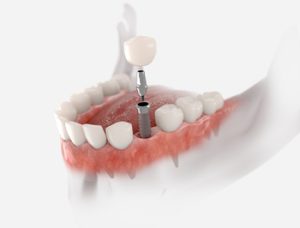In the world of dental health and aesthetics, nothing quite matches the importance of a radiant smile. In recent times, dental implants have emerged as a groundbreaking solution for individuals with missing or damaged teeth.
However, the phrase “cheapest dental implants in Australia” has become increasingly popular in online searches, even more so than the question, ‘Are dental implants painful?.’ While cost concerns are valid, emphasising quality and expertise is paramount. Here’s why focusing on quality rather than seeking the cheapest dental implants in Australia is crucial.
The Rise of Dental Implants
An implant is an artificial tooth root fused in the jaw bone, serving as an anchor for replacement teeth. Beyond aesthetics, dental implants reinstate the functionality of natural teeth, allowing individuals to chew, speak, and smile confidently.
Breaking Down the Dental Implant Procedure
The journey from deciding on a dental implant to flaunting a restored smile involves several steps:
- Initial Consultation: The process commences at a reputable dental practice where an assessment of the overall oral health, bone density, and specific dental needs takes place.
- Planning and Bone Assessment: The health of the jaw bone is crucial. In cases of bone loss, procedures like bone grafting might be necessary.
- Implant Placement: This surgical procedure sees the titanium implant being installed into the jaw bone.
- Healing and Osseointegration: The jaw bone gradually integrates with the implant in a process called osseointegration.
- Artificial Tooth Placement: A dental crown, bridge, or denture is attached to the implant, offering the appearance and function of natural teeth.
Unpacking Dental Implant Costs
According to the national dental fee survey, the cost of dental implants in Australia varies considerably. Factors affecting the dental implant cost include:
- The intricacy of the dental procedure.
- The expertise of the dentist.
- Potential additional treatments like bone augmentation or sinus lift.
The Risk of Cheap Dental Implants
While it might be tempting to opt for cheap dental implants, several considerations need to be front and centre:
- Quality of Materials: Inexpensive implants may compromise on material quality, affecting longevity and compatibility.
- Expertise and Experience: Dental implant procedures require a nuanced understanding and experienced hands. An experienced dentist might charge more but ensures precision and a successful outcome.
- Comprehensive Treatment: Lower costs might mean that essential parts of the dental implant treatment, like bone grafting or professional extraction, are skipped or inadequately performed.
- Post-Procedural Care: Proper aftercare is vital. Cheaper options might not offer comprehensive post-implant care, risking implant health.
The True Worth of Quality Dental Implants
Dental implants are not merely about filling a gap but restoring confidence, functionality, and overall oral health. Here’s the real value they bring:
- Natural Feel and Function: Dental implants mimic real teeth, allowing you to freely eat, speak, and smile!
- Protection of Adjacent Teeth: Unlike dental bridges, which rely on adjacent teeth for support, implants stand alone, ensuring the health of your other natural teeth.
- Durability: With appropriate care, quality dental implants can last a lifetime.
Considering Financing and Dental Insurance
While dental implants can be a considerable investment, many dental practices offer in-house finance options to alleviate immediate financial pressures. Furthermore, consulting with your dental insurance provider is beneficial to see what parts of the treatment might be covered.
Reflecting on Alternatives
Dental implants are just one solution among several dental treatments available to replace missing teeth. Conventional dentures and dental bridges are options too. Each has its pros and cons, and it’s vital to understand these before deciding.
Potential Risks and How to Navigate Them
While dental implants are a groundbreaking and popular solution for replacing missing teeth, it’s essential to acknowledge the potential risks and complications. Understanding these risks, combined with choosing quality over the cheapest dental implants in Australia, can significantly reduce any adverse outcomes and ensure the longevity and health of your implants.
1. Infection at the Implant Site:
Like any surgical procedure, dental implant surgery does come with a risk of infection. If infection control practices are questionable in a chosen dental practice, the chances of post-surgical infections increase.
2. Sinus Problems:
Especially for implants in the upper jaw, there’s a risk of them protruding into one of the sinus cavities. It can lead to sinus-related complications and discomfort.
3. Damage to Surrounding Structures:
Improper dental implant placement could damage the adjacent teeth or blood vessels. It emphasises the need for experienced dentists with a successful track record in dental implant procedures.
4. Nerve Damage:
If an implant is placed too close to a nerve, it might cause numbness, pain, or tingling in the surrounding areas like your natural teeth, gums, lips, or chin.
5. Implant Failure:
Several factors can contribute to implant failure. Poor bone density, improper aftercare, or even choosing low-quality implants can result in the body rejecting the implant.
Choosing the Right Materials
Understanding what materials are being used in your implants is crucial. Some low-cost implants might use alloys that aren’t as biocompatible as pure titanium or ceramic, potentially leading to allergic reactions or other complications.
The Importance of Aftercare
The first few weeks are critical after undergoing a multiple or single-tooth implant procedure. Poor aftercare can compromise the implant’s success. Here are some recommended practices:
1. Regular Cleaning:
Just like natural teeth, dental implants need to be cleaned regularly. It prevents plaque build-up, which can lead to gum disease.
2. Avoid Smoking:
Smoking can inhibit healing in the mouth, increasing the risk of implant failure.
3. Avoid Strenuous Activities:
In the immediate days following the surgical procedure, avoiding vigorous physical activities is essential to ensure optimal healing.
4. Regular Dental Check-ups:
Regular visits to the dental practice post-implant ensure that any potential complications are spotted and dealt with early.
Weighing the Pros and Cons of Alternatives
Before opting for dental implants, it’s worthwhile to understand the advantages and disadvantages of alternatives like dental bridges and dentures:
Dental BridgesA dental bridge involves creating a false tooth, known as a pontic, which is held in place by two dental crowns cemented onto the adjacent teeth. While they can be more affordable upfront, they don’t offer the bone retention benefits of an implant and might need replacement after a decade or so.
- Dentures
Dentures are removable replacements for missing teeth. While they can be economical for missing or damaged teeth, they may offer different stability, function, and aesthetic appeal than dental implants. Over time, dentures might require adjustments, especially if there’s continued bone loss in the jaw.
Considering the Long-Term Value
While the upfront dental implant cost might be more than other treatments, considering the long-term value is vital. High-quality dental implants can last a lifetime, whereas alternatives like dentures and bridges might need replacement or adjustment, incurring additional costs over the years.
Moreover, dental implants can prevent further bone loss in the jaw, maintain facial structure, and ensure overall oral health. They can also enhance one’s quality of life, allowing them to eat, speak, and laugh without the concerns associated with removable alternatives.
Understanding the Impact on Overall Oral Health
Dental implants offer more than just a solution for missing teeth. They contribute significantly to overall oral health.
1. Jaw Bone Stimulation:
When a tooth is missing bone loss can occur in the jaw over time. Dental implants give the necessary stimulation to maintain jaw bone density.
2. Protecting Adjacent Teeth:
Implants ensure that the remaining natural teeth aren’t compromised, which can happen with solutions like dental bridges.
3. Improving Bite and Reducing Wear:
Missing teeth can affect the bite, putting undue stress on other teeth and leading to premature wear. Implants restore balance to the bite, ensuring an even distribution of force.
The Evolution of Dental Implants and Technological Advancements
The world of dentistry has witnessed significant advancements over the years, and dental implants stand as a testament to this progress. It’s fascinating to trace the journey of dental implants, understand how they’ve evolved, and how technology has played a major role in ensuring that patients receive nothing short of excellence in oral care.
A Brief History of Dental Implants
In the 1950s, a serendipitous discovery by a Swedish orthopaedic surgeon, Per-Ingvar Brånemark, laid the foundation for modern dental implants. He found that titanium could fuse seamlessly with bone, a phenomenon termed ‘osseointegration’. This discovery revolutionised the realm of dental implantology, giving rise to the titanium implant, a material that remains popular today due to its biocompatibility.
The Role of Technology in Refining Dental Implants
While history provides context, the present and future of dental implants are even more intriguing, thanks to the rapid technological advancements in dental care:
3D Imaging and Computer-Guided Surgery
With the introduction of 3D imaging, dentists can now have a comprehensive view of the patient’s jaw bone, allowing for precise implant placement. Computer-guided surgical procedures further ensure that there’s minimal room for error during implant surgery, thus significantly reducing potential complications.
Teledentistry
The rise of teledentistry allows patients to consult with experienced dentists from the comfort of their homes. This is especially beneficial for preliminary consultations or post-surgery check-ins, making the entire dental implant procedure more patient-friendly and accessible.
Advanced Bone Grafting Techniques
Bone grafting has become more sophisticated with the ability to use various grafting materials. Whether it’s grafts sourced from the patient, synthetic materials, or even specialised growth factors that stimulate bone growth, these advancements ensure a solid foundation for the implant, even in cases of significant bone loss.
Zirconia Implants
While titanium remains a popular choice, the introduction of zirconia implants offers patients an alternative that’s metal-free, hypoallergenic, and known for its aesthetic appeal due to its tooth-like colour.
Improved Implant Surfaces
Technological innovations have also touched upon the texture and design of the implant’s surface. Enhancements in this realm ensure faster osseointegration, reducing the healing time and improving the overall success rate of the dental implant procedure.
Training and Education in Implantology
As the field of dental implants grows and evolves, so do the training and educational resources available to dentists. The complexity of placing an implant, especially in challenging cases, necessitates rigorous training.
Specialised Courses
Across Australia, several institutions and dental bodies offer specialised courses in implantology. These courses often combine theoretical knowledge with hands-on training, ensuring that dentists are well-equipped to handle various scenarios.
International Collaboration
Thanks to globalisation and technology, Australian dentists can now collaborate with international peers, attend seminars, and even undertake courses in leading dental institutions worldwide. Such exposure ensures that patients in Australia benefit from global best practices.
Regular Upgrades
The world of dental implants is ever-evolving. As such, the best dentists ensure they’re always updated with the latest techniques, materials, and technologies. This commitment to continual learning translates to better patient care and outcomes.
The Patient’s Journey: Enhanced Comfort and Experience
The advancements in dental implant procedures aren’t just clinical. They’ve significantly enhanced the patient’s experience, ensuring comfort, transparency, and reduced anxiety:
1. Virtual Simulations:
Before undergoing a dental implant procedure, patients can now view virtual simulations of how their smile would look post-treatment. It gives them a clearer picture and sets realistic expectations.
2. Sedation Dentistry:
For patients who are reluctant about dental procedures, advancements in sedation dentistry ensure that they can undergo the implant procedure with minimal anxiety.
3. Faster Recovery Times:
Thanks to refined surgical techniques and better materials, patients can now expect faster recovery times, making the dental implant journey more convenient than ever.
Final Thoughts: Quality is an Investment
The old adage, “You get what you pay for,” holds particularly true in the realm of dental health. While seeking the cheapest dental implants in Australia might seem attractive in the short term, the long-term considerations matter most. Quality implants provide aesthetic satisfaction and ensure oral health, functionality, and peace of mind.
Your smile is an investment in your confidence, well-being, and quality of life. Ensure it’s in the hands of experts. Contact Casey Dentists today at 07 4801 7035 to discuss dental implants and discover the best solution tailored to your needs.
Note: Any surgical or invasive procedure carries risks. Before proceeding, you should seek a second opinion from an appropriately qualified health practitioner.
References:
https://www.ncbi.nlm.nih.gov/pmc/articles/PMC7312800/
https://www.frontiersin.org/articles/10.3389/fdmed.2021.687983/full
https://www.teeth.org.au/dental-implants



